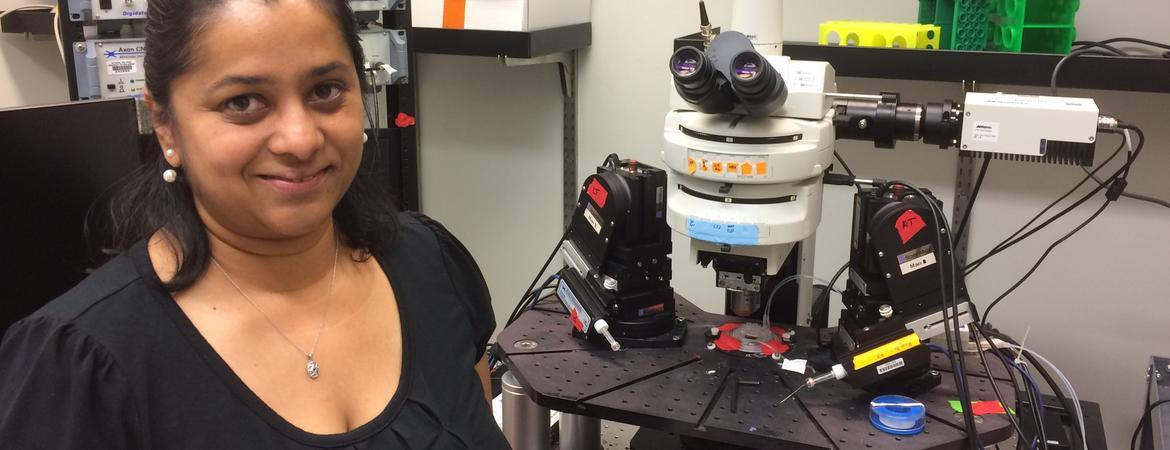College of Natural & Agricultural Sciences

A study examining the effect of the immune receptor known as Toll-like Receptor 4, or TLR4, on how memory functions in both the normal and injured brain has found vastly different cellular pathways contribute to the receptor’s effects on excitability in the uninjured and injured brain.
Further, the researchers found novel mechanisms for how TLR4 regulates memory function in the normal, uninjured brain.
The study, performed on rats and published in Brain, Behavior, and Immperformed on rats and published in Brain Behavior and Immunity, has the potential to lead to treatments aimed at limiting memory deficits after brain injury.
“Memory deficits are a major long-term adverse consequence of brain injury and the ability of a drug treatment given a day after injury to improve memory function is of significant clinical interest,” said Viji Santhakumar, an associate professor of molecular, cell and systems biology at the University of California, Riverside, who led the study. “Resatorvid, a drug approved for clinical trials in other diseases, effectively blocked TLR4 and improved post-injury memory deficits in our study.”